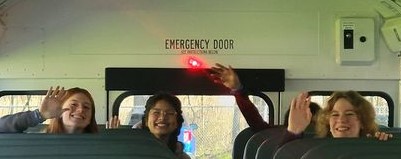Fellow Rotarians
NURTURE HAPPINESS
I recently came across an article presenting habits we should develop to nurture happiness in our lives. There were 9 points presented, but I think there is one more that needs to be added. So here is my revised list of TEN HABITS FOR HAPPINESS:
10. Stop Overthinking. It can be paralyzing. It creates a roller coaster of thoughts in our mind take us up and down and then back to the start. And like a roller coaster it’s a ride of worries and fears, often about things we have no control over. Overthinking doesn’t solve problems; it only creates them. It robs you of your peace of mind and keeps you from enjoying the present moment.
9. Avoid Dwelling on the Past. Of course we want to learn from our mistakes. Obsessing over them prevents us from enjoying the present moment. Use your past as a springboard for growth, not as a ball and chain.
8. Let Go of Grudges. I had/have a hard time with this one. I was seriously and unfairly accused of workplace harassment by a fellow worker who also stole my creative work. It’s hard to give that up. However, imagine hitting yourself in the face and expecting that the other person gets knocked out. It never works. A grudge can weigh heavily on your mind and heart, draining your energy and happiness. The bitterness and resentment it brings can overshadow the joy in your life. It’s not worth it. Only you can make the choice to free yourself from the burden of carrying that anger and pain.
7. Don’t Compare Yourself to Others. In today’s social media era, it’s all too tempting to get caught up in the comparison game. We scroll through carefully curated highlight reels, and suddenly, our own lives don’t measure up. But here’s the reality check: comparison steals your joy. You can’t BE someone else. No comparison can ever match the power of your own unique story.
6. Embrace Change. Change is an inevitable part of life. Yet, many of us resist it because it takes us out of our comfort zones. Embrace change as a part of life. Consider it as a new adventure, a chance to learn, and an opportunity to grow. It’s a shift in perspective that can make all the difference in our journey towards becoming happier.
5. Nurture relationships. The person obsessed with career, money, stature, power while ignoring family and friends is a character stereotype. Think Ebenezer Scrooge. Psychiatrists tell us that social contact is essential to good mental health. Relationships, be it with family, friends, or partners, are like plants. They need to be nurtured regularly to thrive. And when they do, they add a richness to our lives that’s hard to replicate.
4. Balance others needs with your own. It’s great to be needed but not when others begin to drain your energy. Some people will do that. Putting everyone else’s needs before my own is a pathway to exhaustion and stress. It’s OK to say “no”. You can put your own needs first sometimes. And guess what? The world won’t end. It’s okay to prioritize your needs without feeling guilty.
3. Practice self-care. Self-care is a crucial part of maintaining both physical and mental health. It’s easy to neglect what we all know are the essential of self-care: Drink enough water, exercise, sleep, eat in moderation (some say avoid sugar and processed foods). Neglecting self-care means allowing stress to run rampant in our bodies, which certainly doesn’t contribute to a happier life?
2. Express Gratitude. This habit is not just about saying “thank you”. It’s a way of life, a conscious choice to focus on the positives, no matter how small they may be. Gratitude can transform the ordinary into the extraordinary. It has the power to shift our perspective from what’s missing in our lives to appreciating what we already have.
SO what is my addition to this list? Here it is:
1. Change the World. Live a Life of Meaningful Service. In other words, be a Rotarian. The key is to align your actions with your values. Through Rotary you can be intentional about how you choose to serve. By doing so, you not only make a difference in the lives of others but also experience a sense of purpose and fulfillment that comes from knowing you're contributing to something greater than yourself.
The motto of Rotary is “Service Above Self.” Dedicating your life to service through the avenues that Rotary provides can bring profound meaning and fulfillment to both you and those you touch along the way.
That sounds like happiness to me.
Yours in Service,
Matt Kubik, President
 Michelle Shirk, Boys & Girls Clubs of La Porte County
Michelle Shirk, Boys & Girls Clubs of La Porte County


 Our six RYLA students left on Friday for Camp Tecumseh to learn leadership skills. Looking forward to hearing all about it when they return. Thanks to MCAS for providing transportation for our club and the La Porte club.
Our six RYLA students left on Friday for Camp Tecumseh to learn leadership skills. Looking forward to hearing all about it when they return. Thanks to MCAS for providing transportation for our club and the La Porte club..png)













Michigan City, IN 46360
United States of America